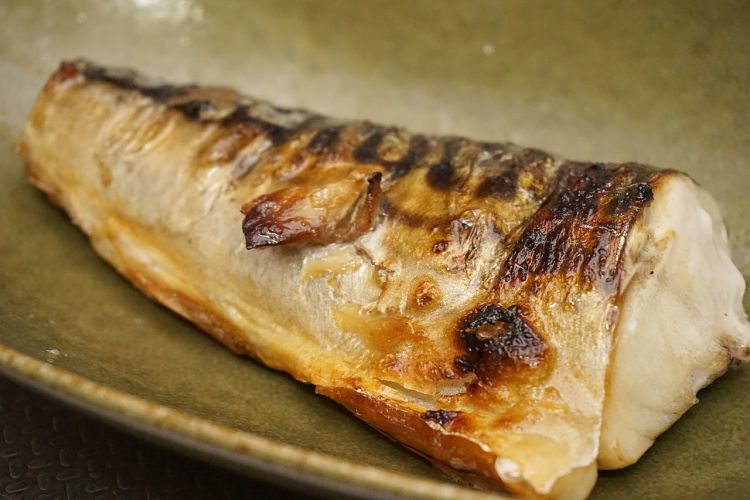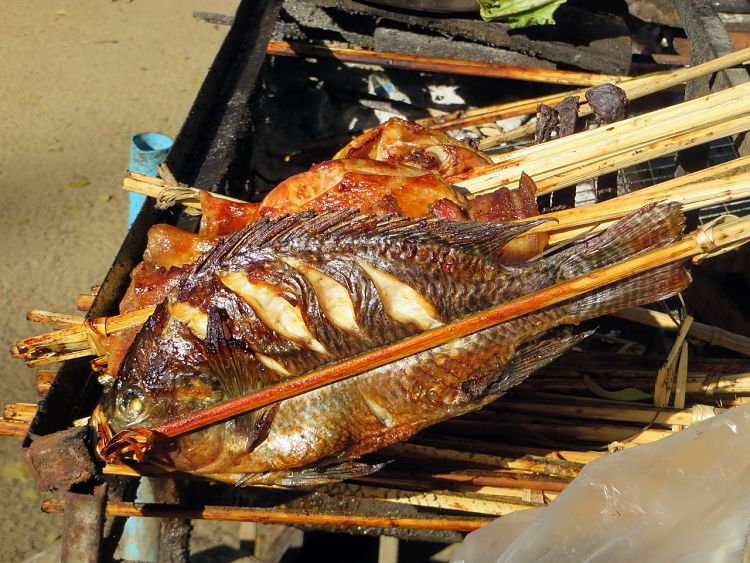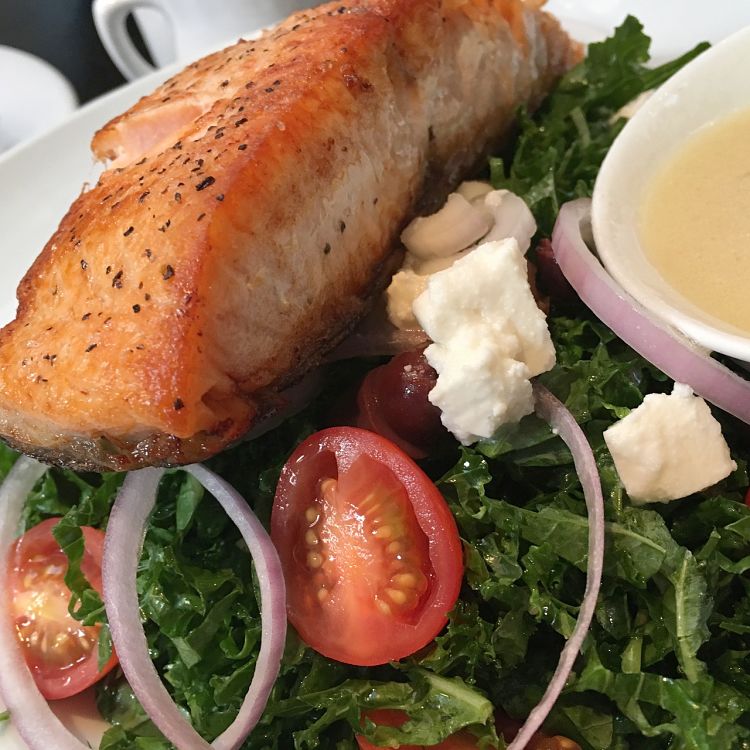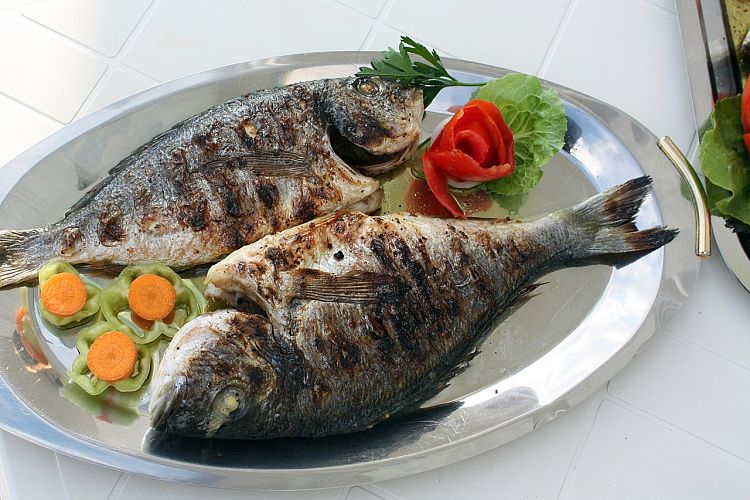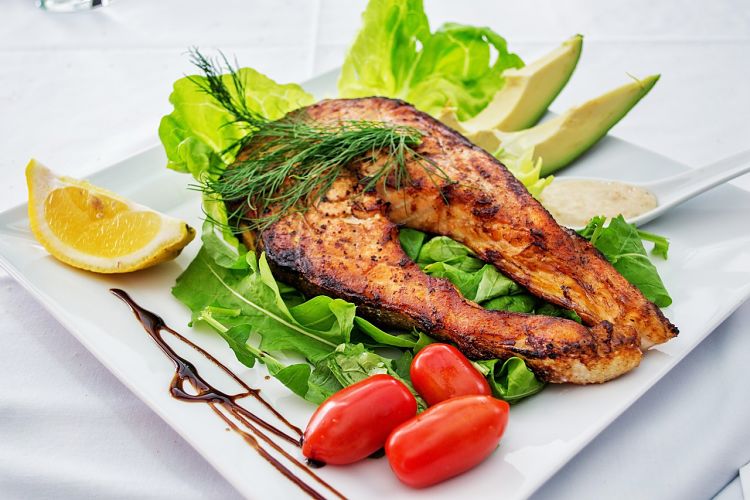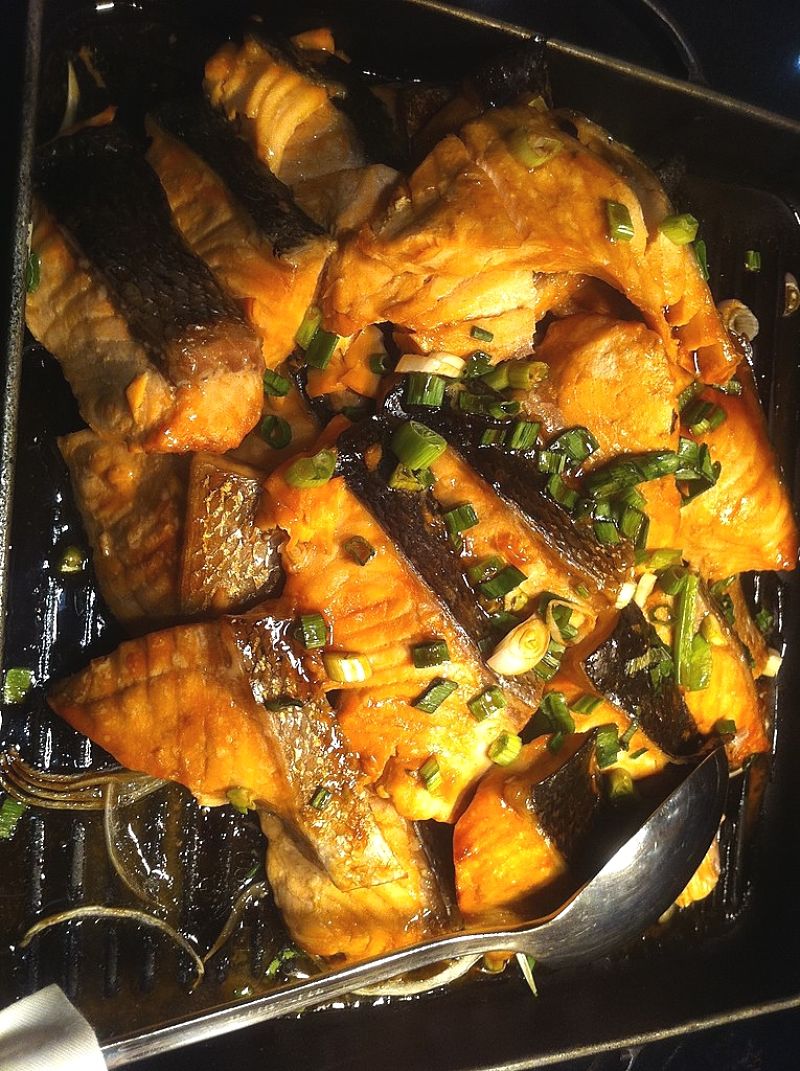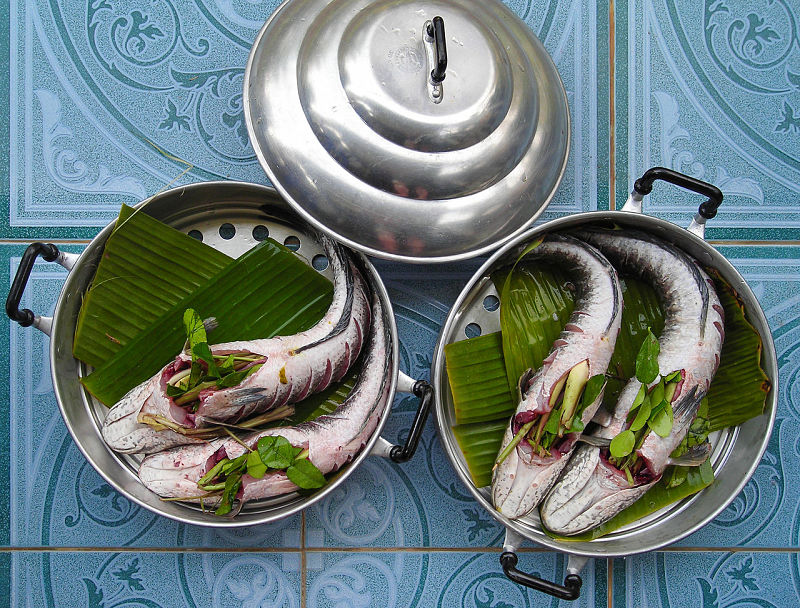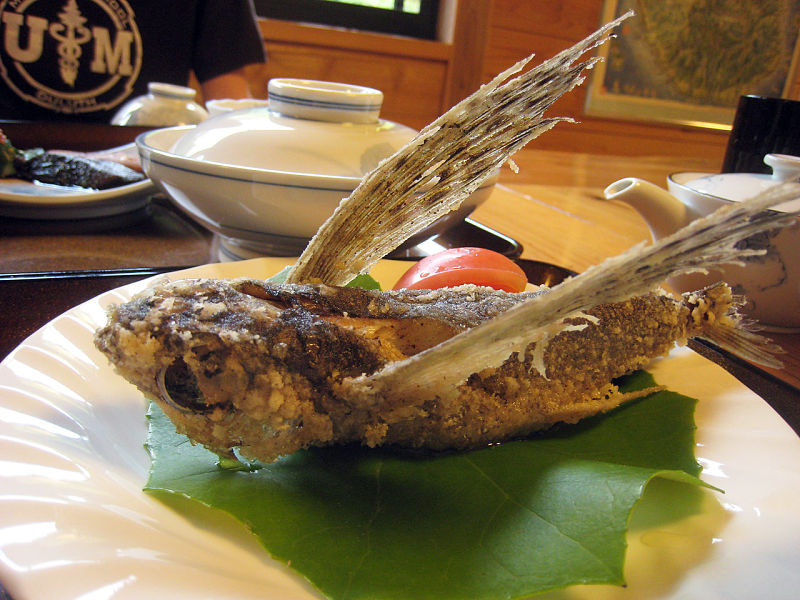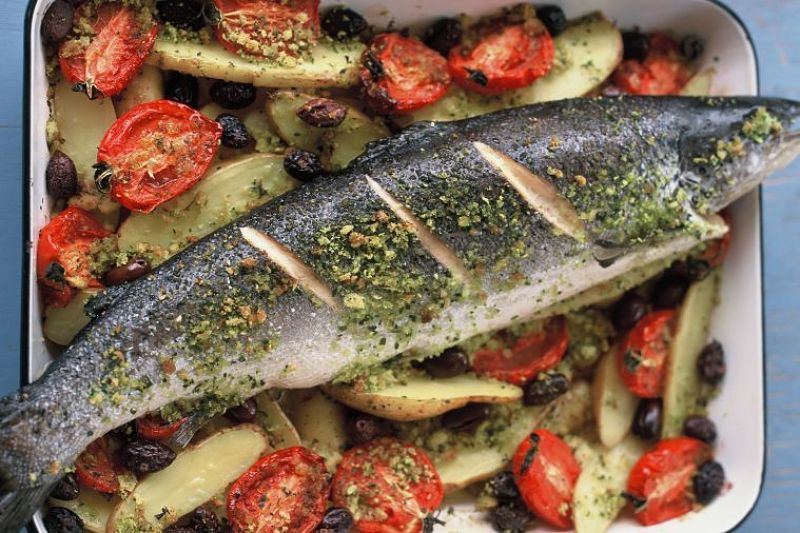How to Grill Fish on Barbecue, Grilled Fish Recipes and BBQ Tips
Grilling fish on a barbecue is a delight if it works, but a curse if it fails. It is a real challenge for three main reasons:
- the fish sticks to the grill,
- it falls apart or
- it gets over cooked or ruined by an overpowering marinade that chars or burns.
The good news is that by carefully choosing the fish species, ensuring it is very fresh and some wonderful tips can overcome all these problems.
The rewards at simply the best fish you can possibly eat, full of flavor, with a delightful texture that showcases the basic fish - this why you want to grill fish - to taste fish - pure delicate primordial fish. Done correctly is can be just like cooking a fish over an open fire, next to a stream or lake in the great outdoors, with the flavor enhanced by the smoke from the fire.
The aim when grilling a fish is to sear the outside of the fish and cook it till it is brown and crisp. Searing the outside lock in the natural juice of the fish so that the fish flesh is white, smooth, moist, delicately scented and just cooked with steam rising as you separate the flakes of the fish.
As you can guess I like fish and I love grilled fish and his article provides advice about how to grill fish properly.
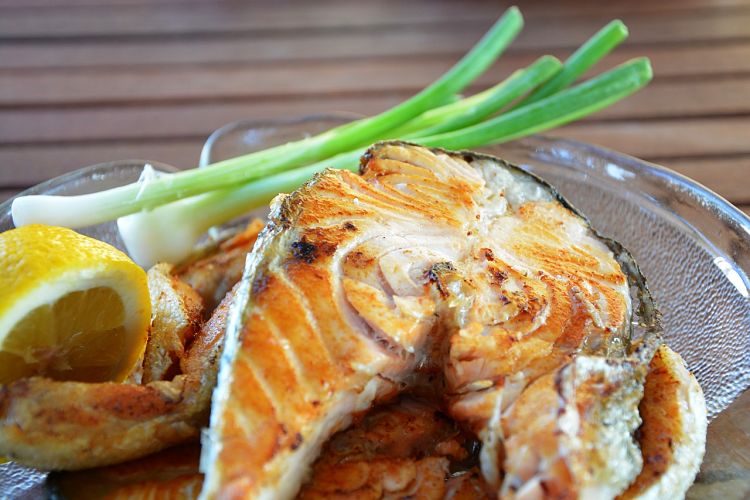
Choosing the Fish
For best results, especially with fillets, cutlets and slices of fish choose a firm fleshed species of fish such as tuna, halibut, salmon, and swordfish, that retain a firm texture when cooked, and will not fall apart. More delicate fish can be flame grilled as whole fish (cleaned of course), wrapped in foil or cooked in a wire basket. The fish should be very fresh, and if frozen, defrosted before being grilled.
The best way to grill softer fleshed fish, is to grill them whole (cleaned and scaled of course) with the skin left on. The skeleton and skin holds the flesh together. If you only have fillets then you can only cook on the skin side and perhaps use a saucepan lid on top to cook the upper surface. If the fillet is thick, cook on the inner side without the skin first for a minute or two and then carefully flip onto the skin side. Your guests may want to eat the skin, but it can be easily removed when the fish is cooked and the skin is essential during the cooking.
With thick whole fish make a series of deep diagonal cuts into the thickest areas. This helps the heat penetrate and you can insert slices of fresh ginger, garlic, salt and soy sauce into the cuts which will permeate through the flesh.
Removing the Marinade from the Outside of the Fish
Always wash or rinse the marinade from the outside of the fish as it will often burn and cause the fish to stick to the surface of the grill.
The Benefits of Grilling on a Rack (not a hot plate)
This is the way fish should be cooked to bring out the delicate natural flavour of the fish. It is not tainted with the flavour of oil when it is fried or baked. The flames, heat from the coals or from the gas driven barbecue cooks the fish fast, easily, simple and retains its natural removing moisture. Grilling on a rack or grate allows more even heating when cooking,. Shallow frying or grilling on a hot plate, applies most of the heat only the surface of the hot plate. Grilling fish is very easy and quick, literally being done in several minutes, depending on thickness. Fish is also great for informal dinner parties. You can offer freshly grilled fish as guests arrive. It should be served just after being cooked and not ruined by being stored in a hot oven.
Knowing When the Fish is Cooked
One of the hardest aspect when grilling fish is determining when it is done. Don't overcook the fish even if this means the fish is just undercooked. It will generally finish cooking while it is waiting to be taken from the barbecue and eaten. You know the scene, you announce that the fish is cooked and ready, but it always take a while for the guest to come and get the fish. This can be the trickiest part of grilling, especially if the fish is thick. When you are learning make it easy for yourself by not trying to cook very thick pieces or fillets. Once you have some experience and you get used to your barbecue and its temperature control you can try thicker cuts.
If you have a large fillet that is very uneven in thickness, consider cutting it into two parts. Put the thick piece of fish onto the grill first, and when it's half cooked, put the other thinner half on to cook. This way you will get each part of the fish cooked to perfection. Otherwise the thin part may be over-cooked and the thick part uncooked in the centre.
Adding Flavours and Seasoning
Generally add these to the fish when it is on the barbecue which enhances its flavour. Add it to the upper surface after the final flip if there is a chance what you add will burn. Brush fresh lemon juice and melted butter onto the cooked upper surface of the fish as you grill to keep the fish moist.
How to Flip the Fish and Stop it Sticking
One major challenge when grilling fish is to make sure it doesn't stick. If it does it may break apart. Tips for reducing the risks of sticking:
- Start with a very clean cooking surface as this will reduce the risk of the fish sticking.
- Remove the marinade from the outside surface, otherwise it will act like glue, especially if the marinade contains sugar or honey.
- Brush oil onto the cooking surface and the fish.
- Cooking fish is very similar to cooking a quality piece of steak, you flip it only once and once only - this will help stop it sticking. Brush the skin-free surface with a little oil and start on that side and cook very briefly. Many people recommend staring with the skin side down first, but the skin helps hold the flesh together when its cooked and it is needed to bind the cooked fish wen you try to lift it off when cooked. It depends on the type of fish being grilled.
- If the fish is too soft or you can't stop it sticking and breaking up then you may need to wrap the fish in foil or use a grilling basket, which will stop pieces of fish from falling through the bars of the grill
- Another option for whole soft fish that tend to break up, is to wrap the fish in damp sheets of newspaper. You can leave the scales on as the newspaper will stick to the paper when it is opened. It can be messy and is probably best dome when barbecuing, but the fish can also be baked (see the recipe below).
Basic Simple Recipe that Enhances the Flavor of the Fish
This Eau De Naturale recipe is for Genuine Fish Connoisseurs
Fish fillets, cutlets or whole fish
about 10 thin slices of ginger per large piece of fish
about 10 thin slices of garlic per large piece of fish
Light soy sauce
Salt and pepper to taste
- Make cuts about 1 cm ( 1/2 inch) deep in the outer surface of the fish, on both sides and insert the ginger and garlic slices.
- Don't use any oil unless you have to, if needed to stop sticking use a neural oil such as canola or grape seed oil, lightly brushed on.
- Grill the fish turning only once.
- When cooked sprinkle on the salt and pepper and add very small drizzles of soy sauce ( small occasional streams, not splashing over the fish. This adds a hint of flavour when you are eating the fish.
Sea Bass Grilled with Garlic Butter Sauce
2 pounds (1 kg) sea bass or similar fish
1 1/2 tablespoons extra virgin olive oil
3 tablespoons butter
2-3 cloves of garlic, minced or finely chopped
1/4 teaspoon paprika
1/4 teaspoon garlic powder
1/4 teaspoon onion powder, or minced fresh onion
Pepper and salt to taste
1 tablespoon fresh Italian parsley,
Finely chopped lemon
- Combine the paprika, onion powder, garlic powder, salt, and pepper in a small bowl, and sprinkle onto both sides of fish.
- For the garlic butter sauce, combine the garlic, butter and parsley in a small saucepan and heat gently until the butter has melted, set aside.
- Preheat the grill for high-medium heat. Lightly and sparsely brush the grate and fish with oil and cook for several minutes on one side.
- Flip the fish over and add the butter sauce to the upper cooked surface, sprinkle with salt and pepper.
- Cook for several more minutes, test for doneness and then remove and serve straight away.
Grilled Tuna (or Swordfish) with Anchovy and Lemon Butter
4 tuna steaks, about 2 cm (1 inch) thick (or similar large firm-fleshed fish such as salmon, halibut or swordfish)
3 anchovies, chopped
1 teaspoon of lemon juice
4 tablespoons of butter (at room temperature)
Salt
Freshly-ground black pepper
1 tablespoon cooking oil
1 tablespoon of chopped fresh parsley
- Heat the grill to medium-high temperature.
- In a small bowl, mix the butter, lemon juice, parsley, anchovies and a pinch each of salt and pepper.
- Brush the fish with a little oil. Sprinkle with salt and pepper.
- Grill the tuna on one side for 2-4 minutes.
- Flip over and cook the other side.
- Brush the top the hot fish with the flavored butter.
- Test for doneness and serve immediately.
Marinated Grilled Salmon
1/4 cup brown sugar
1/4 cup soy sauce
1/4 cup olive oil
1 teaspoon dried thyme
1 teaspoon dried basil
2 teaspoons lemon pepper
1/2 teaspoon garlic powder
1 teaspoon dried parsley
4 salmon fillets or cutlets
- Combine the olive oil, soy sauce, thyme, basil, brown sugar, lemon pepper, parsley, and garlic powder in a bowl, and pour into a re-sealable plastic bag, or a plastic container with a lid.
- Add the salmon fillets, and thoroughly coat all over with the marinade.
- Next squeeze out any excess air in the bag and seal it.
- Leave the salmon in the marinate in the refrigerator for at least 60 minutes.
- Preheat the BBQ grill to medium to hot temperature, and lightly oil the grate.
- Take the salmon from the marinade, wipe off the excess from the surface. Discard the excess marinade.
- Grill the salmon until browned and cooked inside. It will generally take about 5 minutes on each side.
Grilled Glazed Salmon
1/2 cup red wine vinegar
2 tablespoons olive oil
1 teaspoon water
1/2 teaspoon freshly ground black pepper
2 cloves crushed garlic
2 teaspoons dried basil
1 1/2 pounds ( 1 1/4 kg) salmon fillets or cutlets
Salt and pepper to taste
1 teaspoon garlic salt
- In a shallow baking pan or dish, mix the red wine vinegar, garlic, black pepper, olive oil, water, garlic salt and basil.
- Add salmon fillets to the marinade and leave for 30-60 minutes
- Heat a BBQ grill to medium-high heat and lightly oil the surface of the grate.
- Place on grill and cook, flipping over once.
- Test for doneness and serve immediately.
Simple Barbecued Whole Fish
3 lb (1.5 kg) whole snapper (or similar firm texture fish), gutted, scaled and thoroughly cleaned
Juice of 1 lemon
3 teaspoons of canola oil
Canola cooking spray, to grease the grill surface
1/4 teaspoon cracked black pepper
- Rinse the cavity of the fish and check that it is thoroughly cleaned including the blood vessels along the backbone running along the inside of the body cavity (scrape out with a sharp knife and rinse).
- Pat dry with paper towel. With a sharp knife make 3-4, 1cm-deep (1/2 inch), 10cm-long (5 inch) diagonal slashes in the thickest parts of the fish on both side of the fish.
- Rub both sides of the fish with a small amount of oil, squeeze some of the lemon juice evenly over both sides and season with pepper. Cut the lemon pieces in half and place inside the cavity of the fish.
- Grill both sides of the fish until cooked (test with a fork to ensure the flesh inside is white and opaque and lot transparent).
Whole Fish Grilled or Baked in Newspaper
3 1/2 lb (1.5kg) Salmon or other similar whole fish with firm flesh
Several newspaper pages
2 thinly sliced lemons
4 tablespoons of chopped onions
Olive Oil
2 cups of freshly chopped herbs such as parsley, basil, dill, coriander
Ground black pepper
Sea Salt
- Gut and clean the fish. You can remove the scales or leave them on as they stick to the paper.
- Brush the fish with olive oil, salt and pepper, inside and out.
- Put half the herbs inside the cavity.
- Spread the newspaper pages out on a bench 4 or 5 pages thick. Sprinkle the newspaper with water (this stops it burning and helps it stick to the outside of the fish).
- Spread half the ingredients into the middle of the newspaper and add the fish on top of them. Sprinkle the rest of the ingredients over the fish, with a little more olive oil.
- Wrap the fish up tightly in the newspaper, tucking in the ends and secure with several skewers.
- Wet the newspaper and fish parcel thoroughly by placing it into a bucket or bowl of water.
- Place the parcel onto the rack on the barbecue and cook for about 20 - 40 minutes each side. The paper may blacken and sprinkle with water to stop it burning or catching fire.
- Alternatively the fish parcel can be cooked in an oven heated to 220 degrees C (430 degrees F) and bake for about 30 - 45 minutes.
- When the fish is cooked, unwrap the salmon and remove the moist and succulent pink flesh. The skin and scales will stick to the paper. It is messy but fabulous.
Enjoy!
